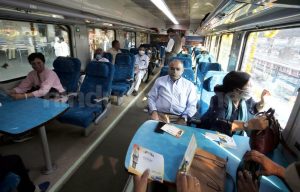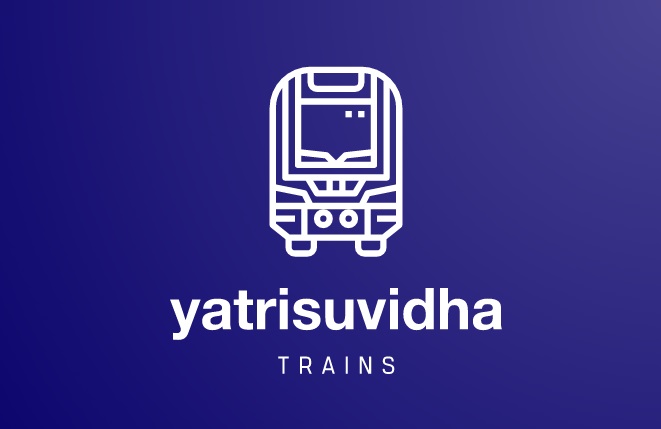
Traveling by train is one of the most affordable and widely used modes of transportation. Indian Railways, one of the largest rail networks globally, caters to millions of passengers daily. However, getting a confirmed ticket can often feel like a daunting task due to various challenges. These challenges include limited seat availability, technical glitches on the IRCTC website, and the perennial issue of long queues at railway counters
- Difficulty in Getting Confirmed Tickets
High Demand and Limited Seats
One of the primary reasons for the difficulty in securing confirmed tickets is the sheer demand for train travel in India. Popular routes, especially during peak travel seasons like holidays, festivals, and weekends, experience a significant surge in bookings. Despite the vast rail network, the number of trains and seats often falls short of demand.
Tatkal Quota: While the Tatkal quota is designed for last-minute travelers, tickets under this scheme are snapped up within minutes, leaving many hopeful passengers disappointed.
Seasonal Rush: Tourist destinations and pilgrimage routes often face overwhelming demand, leading to long waiting lists.
Quota System: Reserved quotas for different groups (senior citizens, women, defense personnel, etc.) further reduce the number of seats available for general passengers.
Waiting Lists and RAC
Passengers often end up with Waiting List (WL) or Reservation Against Cancellation (RAC) tickets. While RAC provides a seat to share, waiting list tickets offer no guarantee of travel. Understanding the nuances of different waitlist types (GNWL, RLWL, PQWL, TQWL) becomes critical but adds to the complexity for average users.
- Issues with the IRCTC Website
The IRCTC (Indian Railway Catering and Tourism Corporation) website is the primary platform for online ticket booking. While it has significantly reduced the dependency on physical ticket counters, it is not without its challenges.
Technical Glitches
Server Overload: During peak booking hours, especially for Tatkal tickets, the website often experiences server overload, resulting in slow response times or crashes.
Payment Gateway Failures: Transactions frequently fail during the payment process, forcing users to restart the booking process and potentially miss out on tickets.
Captcha and OTP Delays: The introduction of captchas and one-time passwords (OTPs) for security often leads to delays, further complicating the booking process.
User Experience Issues
Complex Interface: The website’s interface can be confusing for first-time users, especially when navigating quota systems or understanding fare calculations.
Lack of Real-time Updates: Sometimes, the availability status displayed during the booking process does not match the final outcome, leading to frustration.
Inconsistent App Performance: While the IRCTC mobile app offers convenience, it often suffers from synchronization issues, crashes, and updates during crucial booking windows.
- Long Queues at Ticket Counters
Despite the popularity of online booking, many passengers still prefer or rely on physical ticket counters, leading to long queues and delays.
Why Long Queues Persist
Digital Divide: A significant portion of India’s population, especially in rural areas, lacks access to smartphones, computers, or reliable internet, making counters their only option.
Preference for Human Interaction: Some passengers prefer face-to-face interaction with booking clerks, ensuring clarity and reducing errors.
Language Barriers: Passengers who are not comfortable with English or Hindi often find counter services more accessible.
Challenges at Counters
Limited Staff: Ticket counters are often understaffed, leading to slow processing times and long waiting periods.
Inefficiency: Manual processes, lack of modernized systems, and inadequate infrastructure exacerbate the situation.
Seasonal Pressure: During peak seasons, counters see a surge in passengers, often spilling into overcrowded railway stations.
Addressing the Challenges
To ensure a smoother ticket booking experience, Indian Railways and IRCTC need to adopt a multi-pronged approach:
Increasing Capacity
Adding More Trains: Increasing the frequency of trains on high-demand routes can help reduce waiting lists.
Upgrading Coaches: Introducing additional coaches, particularly sleeper and AC classes, can cater to more passengers.
Enhancing the IRCTC Website
Server Upgrades: Investing in robust servers capable of handling peak traffic is essential.
Simplified UI/UX: Improving the interface for easier navigation and quicker bookings can benefit users.
AI-based Predictions: Tools that predict ticket confirmation chances can help passengers make informed decisions.
Improving Counter Services
Digitization: Introducing automated ticket vending machines and modernizing counter systems can speed up the booking process.
Increased Staff: Hiring more personnel during peak seasons can reduce wait times at counters.
Community Outreach: Educating rural populations about online booking through workshops can reduce dependency on counters.
Promoting Alternative Options
Tourist Trains: Introducing exclusive tourist trains or special services during festival seasons can help distribute demand.
Encouraging Off-Peak Travel: Offering discounts for off-peak travel times can help balance the load on trains and booking systems.
The challenges in securing confirmed train tickets, dealing with IRCTC website issues, and facing long queues at counters are symptomatic of the broader infrastructural and technological hurdles in Indian Railways. While progress has been made in digitizing ticket booking and improving services, there is still significant room for enhancement. By addressing these challenges through capacity expansion, technological upgrades, and better customer service, Indian Railways can ensure a more seamless and stress-free travel experience for millions of passengers.

Leave a Reply